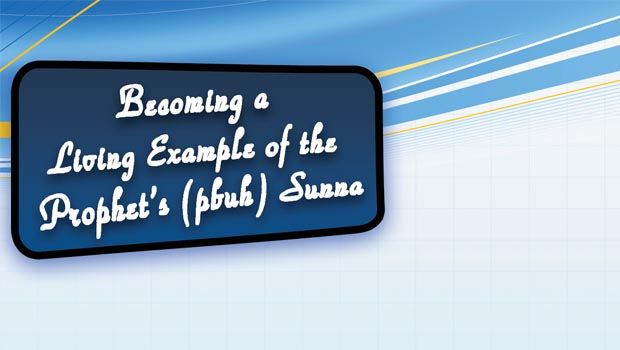Jabir (ra) reported that the Prophet (s) said, “Whoever is not grateful for small things will not be grateful for large things.” And the companion of the Prophet (s), Abdullah Ibn Masood (ra) said, “Eman is two halves, half sabr (patience and perseverance) and half, shukr (gratitude).”
Gratefulness is an essential aspect of Islam. The Prophet (s) said, “Whoever does not thank people, does not thank Allah” (al-Tirmidhi). It should be a central part of every Muslim’s life. Not only is it an important part of our worship, but it also has a profound effect on our mental health and well-being. Research shows that it can reduce stress, improve sleep, and enhance interpersonal relationships. When engaging in negative or counterproductive thoughts, expressing gratitude can shift the mind to a more positive, beneficial outlook. Gratitude for even small things keeps you more satisfied with what you have instead of focusing on what you don’t have. Gratitude reduces feelings of regret, envy, resentment, and frustration, all of which weigh us down mentally and emotionally. A study done by Harvard Health showed that people who reflected on the things they were grateful for were more optimistic about their lives and had fewer doctor visits than those who focused on things that caused them irritation.
Effects of Gratitude on Stress
We all know what some of the most common stressors are —an exhausting work or school schedule, parenting, a tumultuous relationship, loss of a loved one, experiencing abuse, a serious health diagnosis, and the list just goes on. While it is natural to feel fatigue or disappointment or fear when challenged with life’s inevitable stressors, we should aim to stay centered and God-conscious, realizing that the ups and downs of life are part of the test of our faith. Striving to maintain some degree of equanimity is important as stress can cause high blood pressure, erratic heart rhythm, higher stress hormone levels, increased blood pressure, depression, anxiety, difficulty sleeping, and/or irritability.
Even with the daily small inconveniences, disappointments, frustrations, and other challenges, gratitude can offset stress. Dr. Emmons, author of “The Little Book of Gratitude,” states that gratitude can reduce cortisol, a stress hormone, by 23 percent, thereby reducing the health problems associated with high levels of stress. When we express gratitude, our brain releases the chemicals serotonin and dopamine. Serotonin causes us to feel happier, calmer, and more focused. Dopamine is a reward chemical that makes us feel more motivated and productive. These are commonly known as the “happy hormones” that give us overall positive mood and emotions. Thanking others and the Almighty can open the doors to a happier life.
Gratitude and Everyday Relationships
Everyone likes to feel appreciated by those around them, whether spouses, children, friends, or co-workers. The best way to show appreciation is to express it, and there are countless ways to do that. Expressing your gratitude for those around you fosters stronger, healthier and more loving relationships with those people. A 2011 study done by psychologist Nathan Dewall demonstrates that showing appreciation enriches and increases your social circle. People like being around those who make them feel good. One of the ways to show gratitude to your closest loved ones is learning their love language. It may be words of affirmation, acting in ways that help them or serve them, or physical touch and show of affection. Giving gifts, however small, is of course a show of gratitude. The Prophet (s) said: “Give each other gifts and you will love each other” (al-Adab al-Mufrad).
Overcoming Trauma Through Gratitude
Gratitude has also been shown to help people overcome trauma. A 2006 study published in Behavior Research and Therapy found that war veterans who routinely expressed gratitude showed lower rates of PTSD. The practice of gratitude demonstrated a positive effect on motivation and higher self-esteem, and an overall increase in days experienced as pleasant. The study suggests that gratitude “may have salutary effects on everyday functioning.”
We go through many emotions after a traumatic experience, and many people keep their emotions bottled up and then withdraw from social interactions. Gratitude can help people climb out of that state of isolation and work through their emotions. You don’t necessarily have to change how you feel about your situation. You can still feel angry or sad. These emotions aren’t abnormal and ignoring them can put you right back into feelings of withdrawal, but there has to be a balance of emotions. You have to “look on the bright side,” to put things in a more positive perspective, if you want to move forward. Practicing gratitude can be an important part of that process.
The Prophet said, “How wonderful is the affair of the believer! Indeed, all of his affairs are good for him. This is for no one but the believer. If something good happens to him, he is grateful to Allah, which is good for him. And if something bad happens to him, he has patience, which is good for him” (Muslim). We should never stop being grateful for what we have, for our blessings both big and small, and for the people around us, family and friends, who we care about and who care about us.






